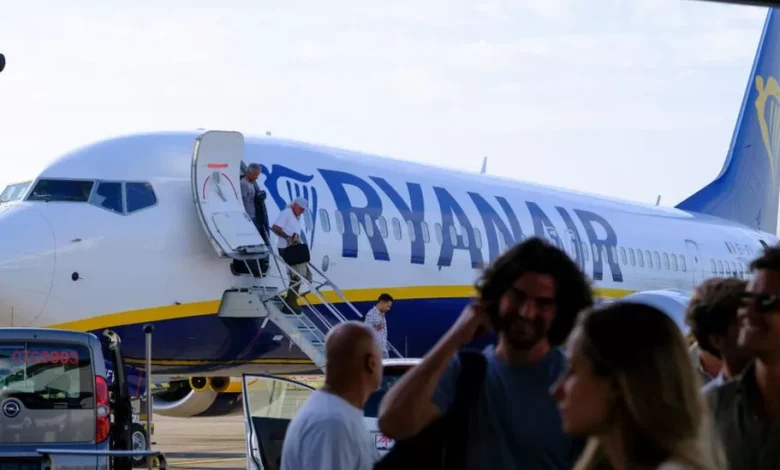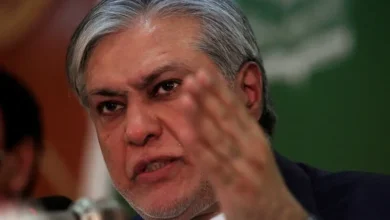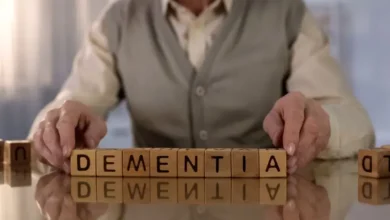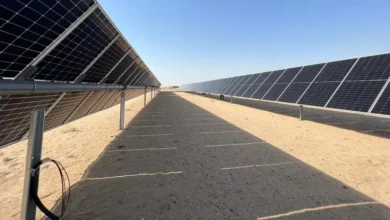Ryanair denies passengers must pay to download boarding pass

Ryanair has said reports of a change to its charging policy are false and that passengers have never been asked to pay to download boarding passes.
Over the past few days travellers have complained on social media that they have had to pay a “scandalous” new fee to access their boarding passes online.
They were only able to download the electronic pass if they paid up to £21 for a seat first, they said.
The alternative was to queue for a paper boarding pass at the airport.
“All Ryanair passengers can pay for a reserved seat if they so wish or if passengers wish to avoid this seat fee, they can select a randomly allocated seat entirely free of charge,” a Ryanair spokesperson said.
However, several passengers have complained on social media that if they chose the option of a randomly allocated seat they were told they would have to pick up a paper boarding pass at the airport, a problem first reported in the Mail on Sunday two days ago.
A series of indignant posts on X, formerly Twitter, have addressed Ryanair directly.
“When and why did you start this carry on? I now have to QUEUE to collect my boarding pass at the airport?” said one passenger travelling from London to Belfast early on Monday morning.
Another passenger said: “I just can’t believe your new policy of not allowing passengers to create a boarding pass (mobile or print-out) unless they buy a seat, forcing them to join a check-in queue (30m or longer) to do so for no other reason for you to make a few quid. Scandalous.”
“This definitely happened to me,” said Neil Buckley, who flew to Riga with Ryanair at the weekend and said he felt forced to pay £15.50 for reserved seats – the equivalent of 10% of the ticket price.
“The app said if I opted for a free random seat I’d have to go to check-in to get a paper boarding pass, which I’ve never seen before.
“If you wanted a digital boarding pass, it said you had to pay for a reserved seat. I was really annoyed that I had to pay to avoid the inconvenience of queueing at check-in,” he said.
Another traveller said that staff at the airport check-in desk told them the new policy was only for the last 20 passengers checking in for the flight, and the charge had been introduced in the past few days.
Most airlines require passengers to check in online, confirming their intention to travel. Usually you can download an electronic copy of your boarding pass at the same time as doing this. Some passengers choose to pick up a printed boarding pass at the airport instead. None of those choices usually incur a charge.
However, these Ryanair passengers say they found they had to book a seat, which typically cost between £7 and £21, before they were allowed to download their boarding pass. The only alternative, if they chose not to pay to book a seat, was to queue for a boarding pass at the airport, they said.
Low-price airlines such as Ryanair have gained a reputation for adding on charges, such as for putting luggage in the hold, booking a seat and asking for a seat with extra legroom.
Budget carriers argue that is how they keep basic fares low compared to traditional carriers who usually provide meals, baggage and other add-ons within the overall price.
Adding extra optional fees is known as “drip pricing” and can add significantly to the total price.
Recent government research into the issue found these hidden fees were common not only among airlines, but also at other travel firms, gyms, restaurants, cinemas and theatres. More than half of firms in the entertainment and hospitality industries operate some kind of drip pricing, the research found.
The government recently held a public consultation into drip pricing and whether there should be clearer information for consumers.
The consultation closed in October, but the government has not indicated when it will respond.
Ryanair’s pricing strategy has already been in the news in recent months, after it charged an elderly couple £110 to print their tickets at the airport. They had mistakenly downloaded their return tickets instead of their outgoing ones.
In a second case that hit the headlines, Ryanair charged a family £165 to check in at the airport after it said they had “unchecked themselves” even though they turned up at the airport with their printed boarding passes.
Consumer rights expert Martyn James said the latest reports could indicate an error with Ryanair’s computer or booking systems.
“If this new charge is true, then it’s something of a false economy for Ryanair, as they’ll need an awful lot more staff on the check-in desks to print off all of those boarding passes,” he said.
“However, this latest news story highlights a glaringly unfair scenario that’s been allowed to continue for far too long. Passengers should not have to pay for reserving a ‘standard’ seat at all. Speedy boarding, more legroom, premium – fine. But you should not have to pay to sit next to a loved one.”










